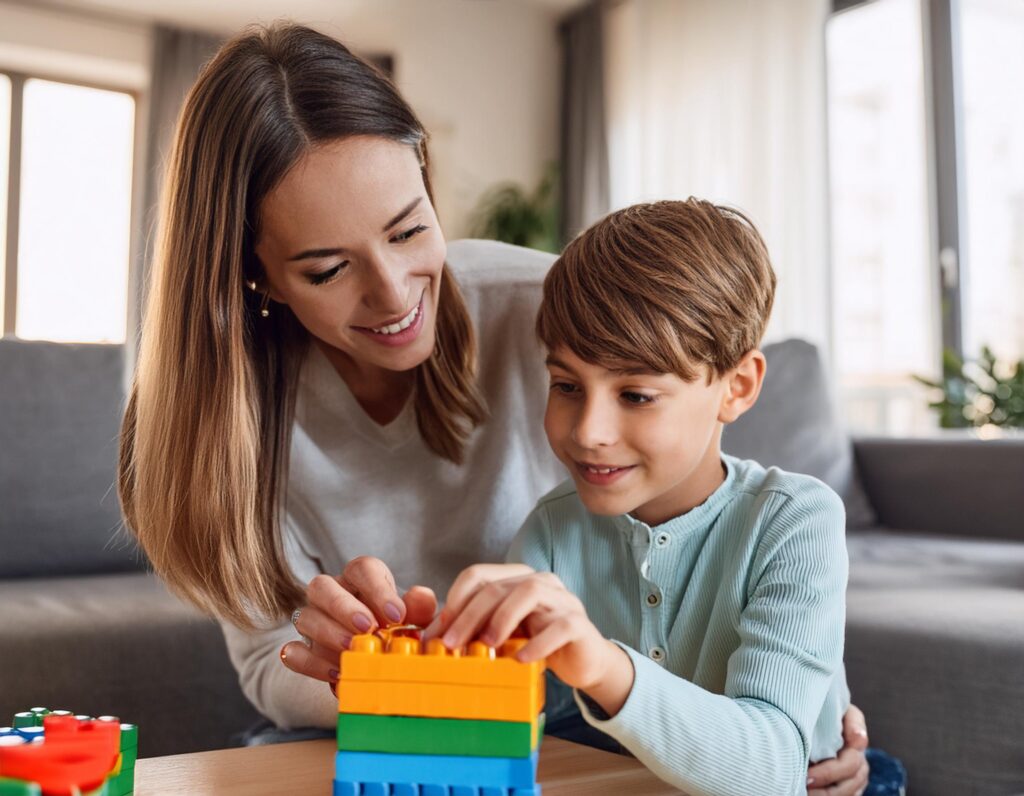
Parenting a child with ADHD can be challenging, but understanding how your behaviors impact your child can make a significant difference in their development and well-being. As a parent, your actions, reactions, and strategies play a crucial role in shaping your child’s behaviors and coping mechanisms.
Parents of ADHD children report more parenting stress compared to parents of non-ADHD children, in large part because they feel like they don’t have the resources to deal with the demands of parenting a child with ADHD.
Influence of Parenting Behaviors
Here are some of the primary ways, as a parent, you can influence the behavior of your ADHD child.
- Consistency and Structure – Children with ADHD thrive on consistency and structure. By establishing clear routines and expectations, you provide a predictable environment that helps your child manage their symptoms more effectively. Inconsistent parenting can exacerbate ADHD symptoms, leading to increased frustration and behavioral issues.
- Positive Reinforcement – Encouraging and rewarding positive behaviors reinforces those actions. Children with ADHD often experience negative feedback from various sources, so your positive reinforcement can boost their self-esteem and motivate them to continue striving for good behavior.
- Calm and Patience – Your calm and patient demeanor can help your child feel more secure and understood. When you respond to their challenges with patience rather than frustration, you model effective coping strategies and create a supportive atmosphere that encourages open communication.
- Active Involvement – Being actively involved in your child’s life—attending school meetings, engaging in their activities, and understanding their daily experiences—enables you to identify triggers and develop strategies to address them. Your involvement shows your child that they are supported and valued.
Benefits of Being Knowledgeable and Informed
A recent survey of parents of ADHD children found more than half of the parents did not have a clear understanding of their child’s strengths and weaknesses. They also did not have a plan for managing their child’s behavioral issues. Part of the reason was that they did not understand how ADHD affected their child’s behavior. Becoming knowledgeable about the condition has important benefits:
- Effective Advocacy – When you understand ADHD’s causes, symptoms, and treatments, you can advocate more effectively for your child’s needs at school, in healthcare settings, and within the community. This knowledge empowers you to seek appropriate accommodations and interventions that support your child’s success.
- Improved Support – Knowledgeable parents can better support their child’s emotional and educational needs. You can implement evidence-based strategies at home, collaborate with educators, and seek professional help when necessary, ensuring a comprehensive support system for your child.
- Reduced Stress – Understanding ADHD reduces the uncertainty and frustration that often accompany parenting a child with this condition. You’ll feel more confident in your ability to manage challenging behaviors and support your child’s growth, leading to a more harmonious family environment.
Tips for Learning More About ADHD
There are several ways to learn more about ADHD, including:
- Research and Read: Start with reputable sources such as the Centers for Disease Control and Prevention (CDC) and the National Institute of Mental Health (NIMH). Books by experts in the field, such as Driven to Distraction by Dr. Edward Hallowell and Dr. John Ratey, provide valuable insights.
- Join Support Groups: Connecting with other parents of children with ADHD can provide emotional support and practical advice. Online forums, local support groups, and organizations like CHADD (Children and Adults with Attention-Deficit/Hyperactivity Disorder) offer community and resources.
- Consult Professionals: Speak with healthcare providers, psychologists, and ADHD specialists. They can offer personalized advice, recommend treatments, and help you understand your child’s unique needs.
- Attend Workshops and Seminars: Many organizations and schools offer workshops, seminars, and webinars on ADHD. These can be great opportunities to learn from experts and connect with other parents.
- Stay Updated: ADHD research is ongoing, and new findings emerge regularly. Subscribe to newsletters, follow relevant social media accounts, and keep in touch with professionals to stay informed about the latest developments and strategies.
By taking these steps, you can become a more informed and effective advocate for your child, helping them navigate the challenges of ADHD with confidence and resilience. Your involvement, understanding, and support can make a world of difference in your child’s life.
References
- https://www.psychologytoday.com/us/blog/mythbusting-adhd/202407/benefits-of-parent-education-in-raising-children-with-adhd—
- https://www.cdc.gov/adhd/treatment/behavior-therapy.html—
- https://chadd.org/for-parents/overview/—
- https://www.medicalnewstoday.com/articles/parenting-an-adhd-child-age-by-age—
- https://www.additudemag.com/parents-with-adhd-on-parenting/—


